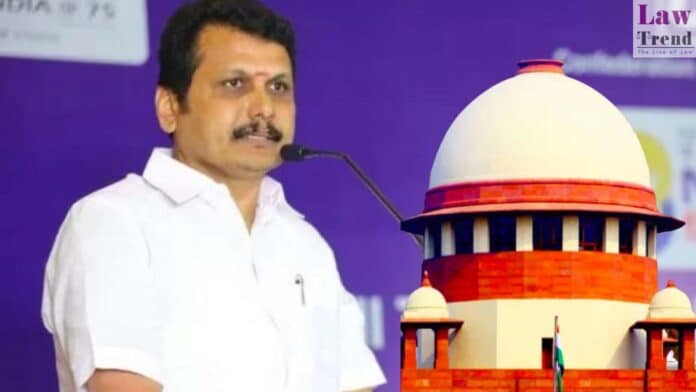The Supreme Court has raised significant concerns regarding potential witness intimidation following the appointment of Senthil Balaji as a Minister in Tamil Nadu, immediately after he was granted bail in a case linked to a cash-for-jobs scandal. The bench, led by Justice Abhay S. Oka and Justice Augustine George Masih, is scrutinizing the implications of this development on the integrity of the ongoing judicial process.
The controversy began after Balaji, a senior member of the Dravida Munnetra Kazhagam (DMK) and a well-known political figure in Tamil Nadu, was released on bail on December 2, 2023. His rapid transition from an accused in a money laundering case to a state Cabinet Minister has triggered legal and public debates about the fairness and security of the witnesses involved in the case.
During the proceedings, Justice Abhay Oka expressed dismay over the sequence of events, stating, “Granting bail, only for you to assume a ministerial position the very next day, raises concerns about possible witness intimidation due to your status as a senior Cabinet Minister. What is going on here?” This question underscored the court’s preliminary focus on ensuring that the trial’s integrity remains uncompromised by external influences.
The allegations against Balaji pertain to a cash-for-jobs scam, where it is claimed that government jobs were sold for money, involving intricate financial transactions that the Enforcement Directorate (ED) is currently investigating. These charges suggest a broader pattern of corruption that might have been facilitated or overlooked due to Balaji’s influential political position.
The Supreme Court has made it clear that while the merit of the bail decision itself is not under review, the subsequent events warrant a thorough investigation to prevent any potential undue influence on witnesses. This situation has highlighted the critical balance between judicial decisions and political appointments, especially when the accused holds a significant government position.




